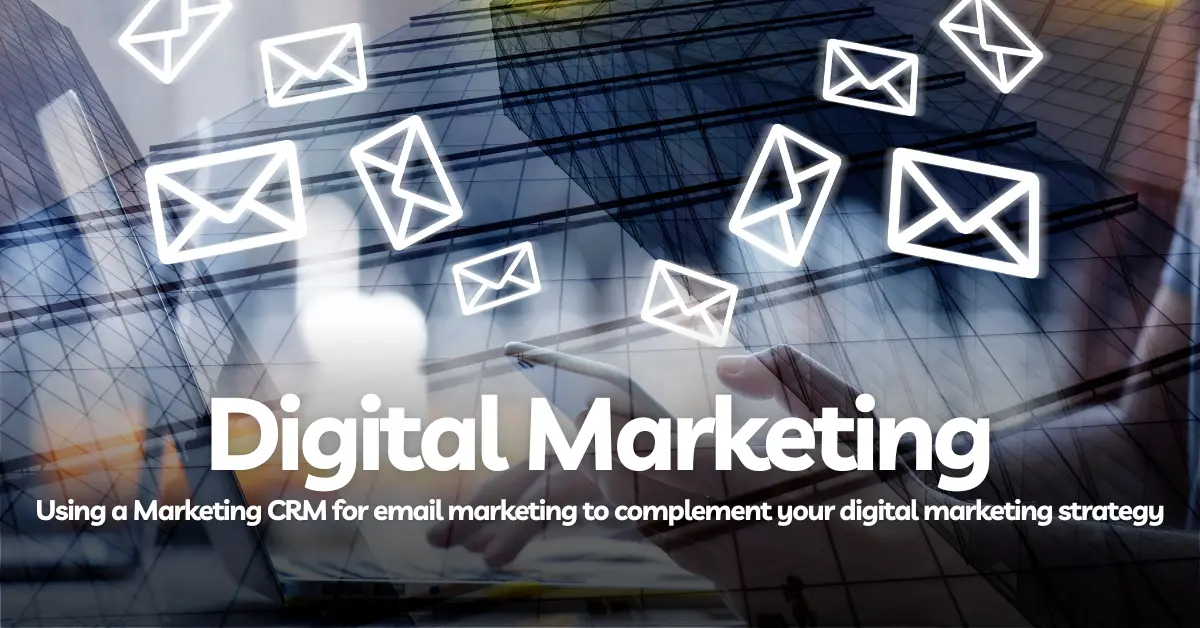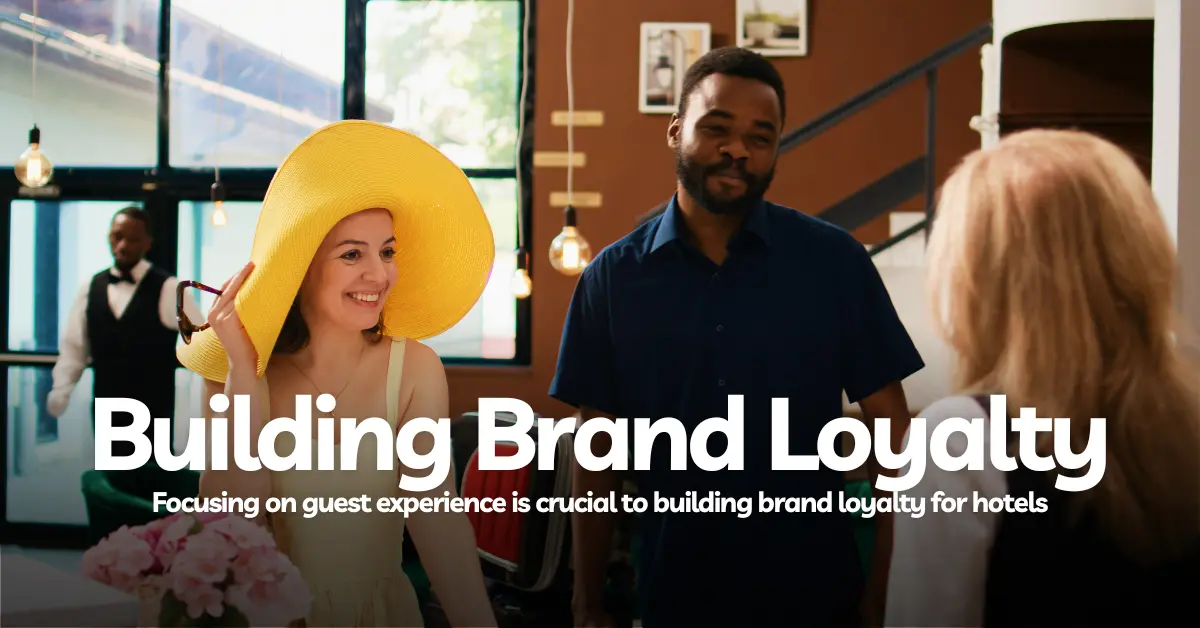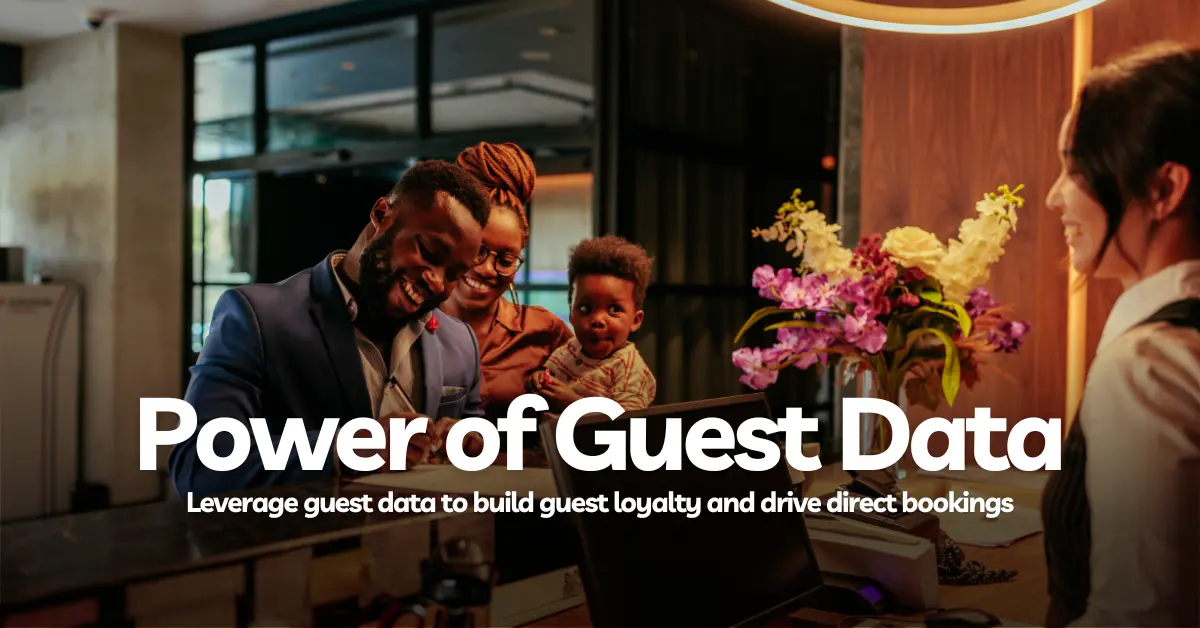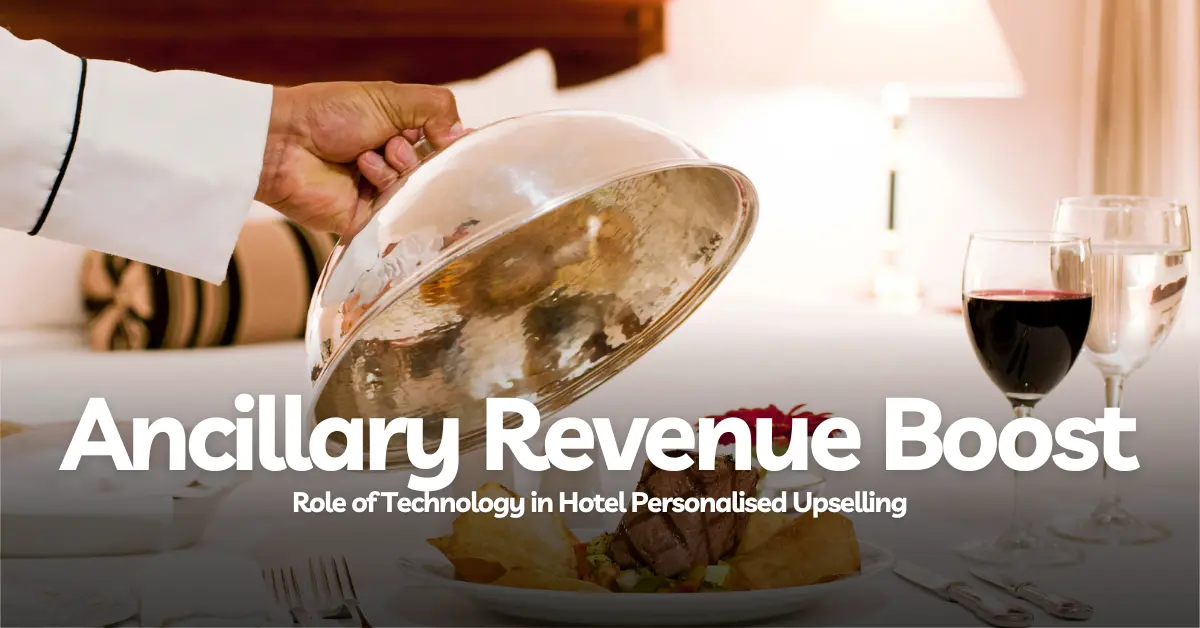In the ever-competitive landscape of the hospitality industry, staying ahead of the curve is crucial for success. One of the key elements that can set a hotel apart is the ability to provide a personalised and memorable guest experience. Leveraging automation has become increasingly essential to achieve personalisation at scale.
In this article, we’ll delve into the significance of guest personalisation, explore the role of automated guest engagement, and discuss how embracing automation can not only improve the guest experience but also contribute to increasing Revenue Per Available Guest (RevPAG).
Understanding the Importance of Guest Personalisation
Guest personalisation involves tailoring the hotel experience to meet the unique preferences and needs of each guest. It goes beyond the standard amenities and services, aiming to create a memorable and personalised stay that resonates with the individual guest.
Today’s travellers are not just seeking accommodation; they are looking for an experience that caters to their specific tastes and preferences. By personalising the guest experience, hotels can build a stronger emotional connection with their guests, leading to increased loyalty and positive reviews.
The Role of Automated Guest Engagement
Manual personalisation, while effective, can be time-consuming and resource-intensive. This is where automation comes into play. Automated guest engagement systems leverage data and technology to streamline and enhance the personalisation process.
Automated guest engagement can start from the moment a reservation is made. By collecting and analysing guest data, hotels can gain insights into guest preferences, such as room type, special requests, and even dietary restrictions. This information can be used to create a tailored experience for each guest.
During the stay, automated systems can send personalised messages and offers, enhancing the guest’s overall experience. For example, sending a welcome message with details about the hotel’s facilities, personalised recommendations for nearby attractions, or exclusive offers for on-site services.
Moreover, automation can extend beyond the stay itself. Post-stay, hotels can use Marketing CRM systems to gather feedback, send post-stay offers, and even follow up with personalised thank-you messages. This continuous engagement helps in building a long-lasting relationship with the guest, increasing the likelihood of repeat bookings.
Improving the Guest Experience Through Automation
Automation not only makes the personalisation process more efficient but also allows for a level of customisation that might be challenging to achieve manually. Here are some ways automation can enhance the guest experience:
- Personalised Communication: Automated systems can send timely and relevant messages to guests based on their preferences and behaviour. This can include pre-arrival information, in-stay recommendations, and post-stay follow-ups.
- Customised Offers: By analysing guest data, hotels can create targeted and personalised offers. This could include discounts on spa services, room upgrades, or special packages tailored to individual preferences.
- Efficient Service Delivery: Automation can streamline service delivery by anticipating guest needs. For example, an automated system can notify housekeeping when a guest prefers their room to be cleaned at a specific time or ensure that a guest with dietary restrictions receives appropriate meal options.
Increasing RevPAG Through Personalisation and Automation
Revenue Per Available Guest (RevPAG) is a key metric that reflects a hotel’s ability to maximise revenue from each guest. Personalisation, when combined with automation, can significantly impact RevPAG in several ways:
- Upselling Opportunities: Automated systems can identify upselling opportunities based on guest preferences and behaviour. Whether it’s a room upgrade, additional services, or special packages, targeted upselling can contribute to increased revenue.
- Repeat Business: Personalised experiences create a positive impression, increasing the likelihood of repeat business, ideally through direct bookings. Loyal guests are more likely to choose the same hotel for future stays, contributing to a consistent stream of revenue.
- Enhanced Guest Spending: Customised offers and recommendations can encourage guests to spend more on on-site services, such as dining, spa treatments, and recreational activities.
- Positive Reviews and Word-of-Mouth Marketing: A personalised and memorable experience often results in positive reviews and word-of-mouth recommendations. This positive publicity can attract new guests, contributing to increased occupancy and revenue.
Challenges and Considerations
While automation holds immense potential for enhancing guest personalisation, hotels need to be mindful of potential challenges. Data security, guest privacy, and the risk of over-automation are important considerations. Striking the right balance between automation and a human touch is crucial to ensure that guests feel genuinely cared for rather than just processed by a machine.
In conclusion, personalisation at scale is a game-changer in the hospitality industry, and automation is the key to achieving it efficiently. By leveraging automated guest engagement systems, hotels can not only improve the guest experience but also increase RevPAG. As technology continues to advance, embracing automation will be essential for hotels that strive to stay competitive and deliver exceptional experiences to their guests.





